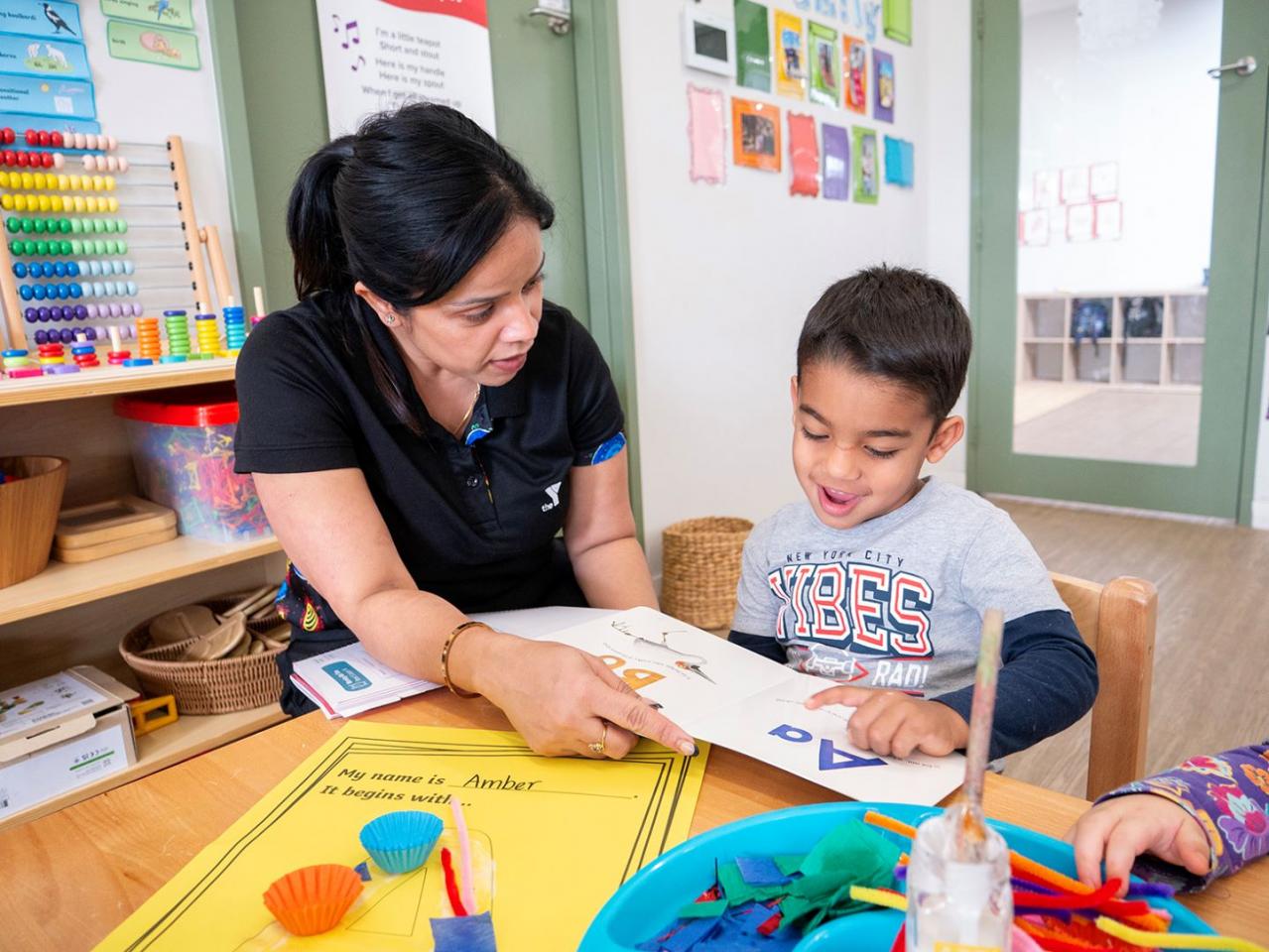An alarming one-third of Australian students are failing to learn to read proficiently and more than one-fifth of our nation’s children are starting school developmentally vulnerable.


An alarming one-third of Australian students are failing to learn to read proficiently and more than one-fifth of our nation’s children are starting school developmentally vulnerable.
The Y WA’s new School ReadY program draws on leading evidence-based research into how children's brains develop and learn in early childhood to deliver impactful learning experiences.
Led by the Y WA CEO Dr Tim McDonald in collaboration with leading researchers in the field, School ReadY supports 3- to 5-year-olds by giving them the best start to formal schooling.
The first five years of a child’s life is known to be vital for developing knowledge and skills in early literacy and language, social and emotional wellbeing, and numeracy.
The program is based around school readiness and the science of early childhood development, with a focus on building success in three essential domains – early literacy and language, social and emotional wellbeing, and numeracy.
“School readiness is often perceived as being able to sit on a mat quietly, being able to get your lunchbox ready, use scissors or being able to listen to a story, however evidence shows that the brain is so receptive at this young age and there is so much more we can do to prepare children for success at school and beyond,” Dr McDonald said.
“A focus on the early years is a commitment to prioritising prevention and early intervention.”

The play-based intentional learning program launched in April 2024 across all the Y WA's 14 early learning centres (ELCs) after a pilot study conducted in five centres across WA throughout 2023.
Find out more about the School ReadY program.
Learning linked to behaviour
The Y WA CEO Dr Tim McDonald - an authority on student learning and engagement who has authored a book on classroom engagement and founded K-12 behaviour program Classroom Mastery - believes improving education and learning among students in Western Australia starts with intentionally teaching students behaviour.
“Student learning does not happen by chance. It is a result of planned and intentional teacher actions. Schools need to teach students how to behave. Just as cognitive abilities vary, so too do students come to school with varying levels of ability to behave in classrooms,” he said.
“Instead of every teacher having a different way of starting and ending classes and gaining the students’ attention, they should all follow the same script. As part of the Classroom Mastery program, teachers receive professional development on how to create specific routines for entering and exiting the classroom and how to gain students’ attention.”
Dr McDonald, who has led a groundbreaking study linking student achievement with behaviour, believes the levels of student engagement and learning in WA classrooms can shift if three key ideas gain mainstream recognition: Learning happens when student behaviour is managed; behaviour should be taught explicitly to all students; and behaviour as a curriculum needs to be the norm across Western Australian schools.

“To maximise learning in the classroom, it is necessary to teach the students how to behave. The teaching of behaviour needs to be planned, resourced and rehearsed just like any academic content,” he said.
“Every school needs to address the behaviour expectations they have for all students and then to make these clear to students, staff and parents. Once defined, these behaviours, routines and rules are taught and practiced by the students like any other topic or subject,” Dr McDonald explained.
“Every classroom in Australia is filled with students from different backgrounds with different values and beliefs about what good behaviour is. To help students succeed in learning in a class full of individuals, the teacher needs to teach them how to behave in that class. A consistent classroom is predictable, reliable and stable because there are clear norms of behaviour, routines to follow, and rules,” he added.












